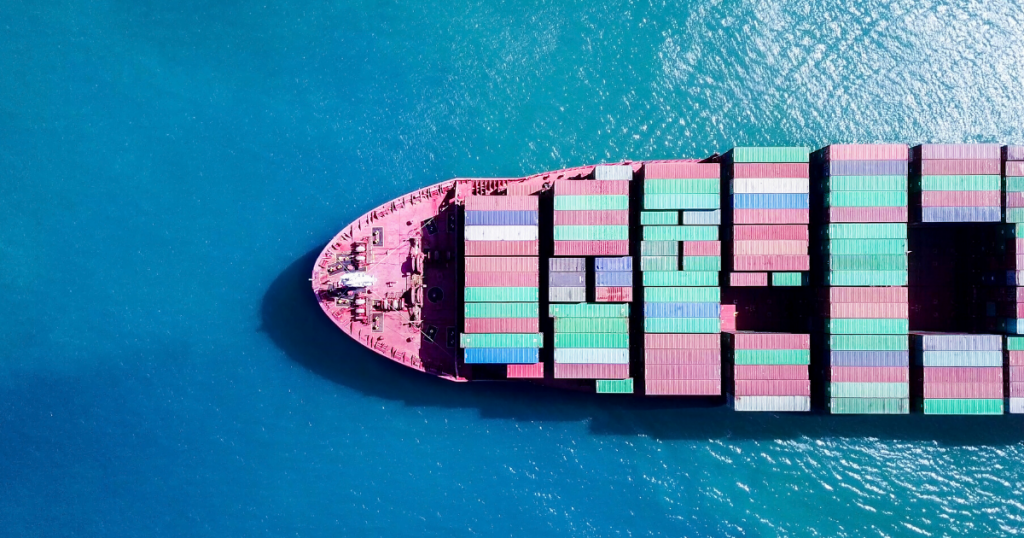- Clothing providers are rebooking more than 60 percent of airfreight shipments into ocean freight.
- Spot market rates for ocean freight double.
- Six million empty containers piled up in China.

(Bochum, 3/25/2020) Full brake and roll backwards. Even the announcement by the German government that shops would have to be closed due to the pandemic caused by the corona virus led to short-term changes in the logistics strategy in the fashion industry. Clothing companies initially were trying to use expensive airfreight to move goods out of China which couldn’t have moved out before the curfew restrictions kicked in. By the middle of last week the companies changed their minds. They cancelled more than 60 percent of air freight shipments, for which in some cases they would have paid five times the previous year’s price on the spot market. The goods that had not yet been cleared through export customs were increasingly transferred to sea freight, even though it costs double the usual price on the spot market. The motto for bookings was “the slower, the better”, because container ships from Asia are now used as “floating warehouses”.
This is shown by data from Setlog’s supply chain management software OSCA. For the analysis, the SCM experts from Bochum evaluated the supply chains of more than 100 fashion brands and their supply chain partners. The analysis is dated March 23.
According to the report, many companies tried to stop orders at the last minute. When this was no longer possible, the logistics experts split the deliveries into urgent air freight shipments for e-commerce orders and inexpensive sea freight shipments that can take a long time to arrive because the fashion retail stores are currently not doing business. Until the end of April, this trend is visible in Setlog’s system. The costs resulting from the change of transport mode from air to sea are now only a fifth. In specific terms, this means that for the transport of a jacket from Asia to the western ports, a company pays on average only 50 cents instead of 2.50 Euros or more, depending on loading capacity, product and volume.
All in all, the delivery delays from China to Germany have worsened compared to the last analysis by Setlog on March 12, 2020. Instead of an average of 20 days later than planned, goods now arrive 25 days later. The biggest bottleneck has shifted from the beginning of July to the beginning/middle of August.
Setlog board member Ralf Duester assumes that the corona virus pandemic will continue to affect the supply chains of the fashion industry for a long time to come. “Full containers are still stuck in some Chinese ports. In addition, according to the German Logistics Association (Bundesvereinigung Logistik), around six million empty containers are piled up in China alone, which are only gradually entering the system because ships are full. It may take months before the situation returns to normal,” stresses Duester. Air freight rates are “extremely volatile”. On the one hand, due to the cancelled passenger flights, there is a lack of so-called belly capacities in the planes from Asia to Europe. On the other hand, air freight cancellations in the consumer goods sector are now freeing up cargo space again. According to Duester, companies that work with their factories, suppliers and purchasing offices directly on a central supply chain platform have an advantage in rapidly changing situations. In this way, time delays in raw materials, changes in production and transport can be communicated quickly between all partners including forwarding agents. “We have customers with deeply integrated supply chains using our OSCA system. They are able to make changes that are immediately visible to all partners”, says Duester.
Contact
Nora Breuker, Marketing Lead
Setlog GmbH, Alleestraße 80, 44793 Bochum, Germany
P +49 234 720 285 78, n.breuker@setlog.com, setlog.com
About Setlog
Setlog Holding is a provider of tailor-made Supply Chain Management (SCM) software solutions. The central product is the cloud-based SCM software OSCA®, which is used by over 150 brands in the apparel, electronics, food, consumer goods and hardware sectors. With the help of OSCA®, companies connect their customers with suppliers and service providers to optimally coordinate their supply chain, accelerate processes and manage supply chains efficiently. Setlog GmbH is a wholly owned subsidiary of Setlog Holding AG. Founded in 2001, the company is now a leading provider of SCM software with over 40,000 users in 92 countries. The software company employs 60 people between Bochum (headquarters), Cologne and New York. www.setlog.com
